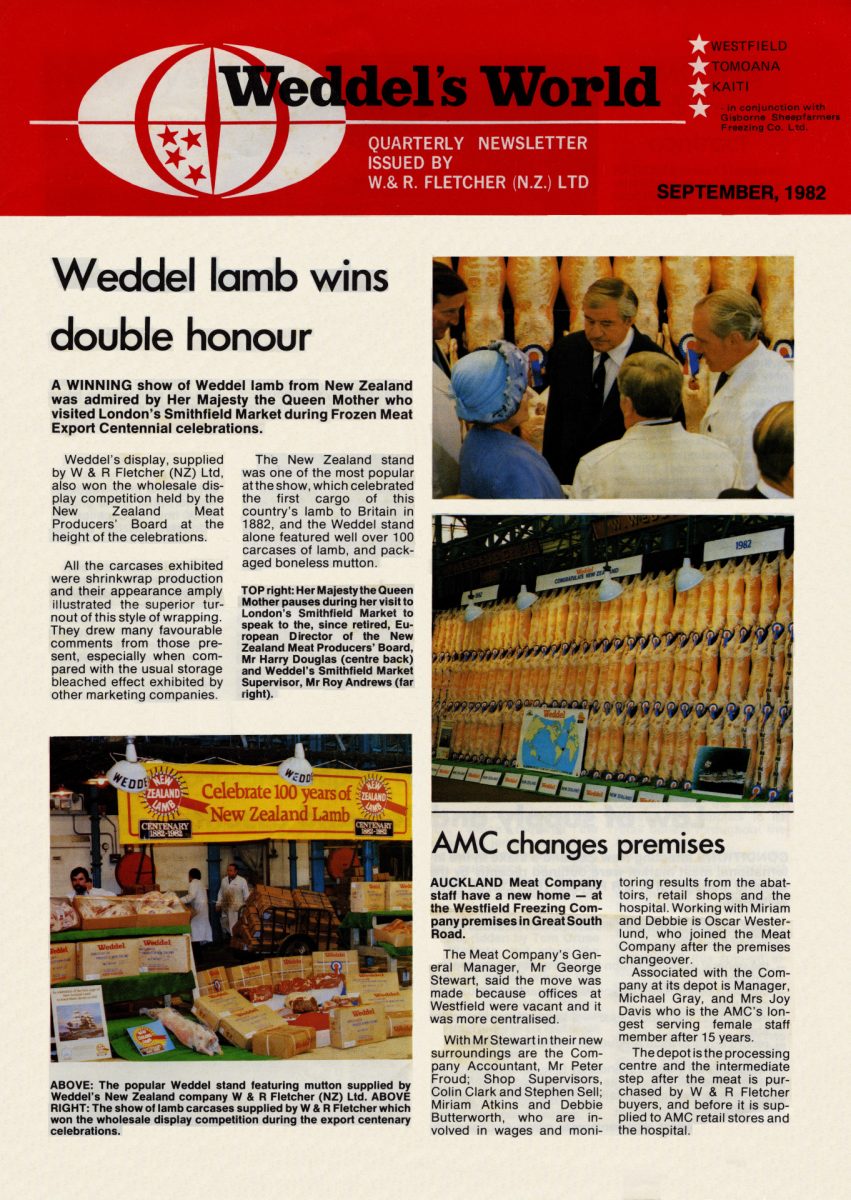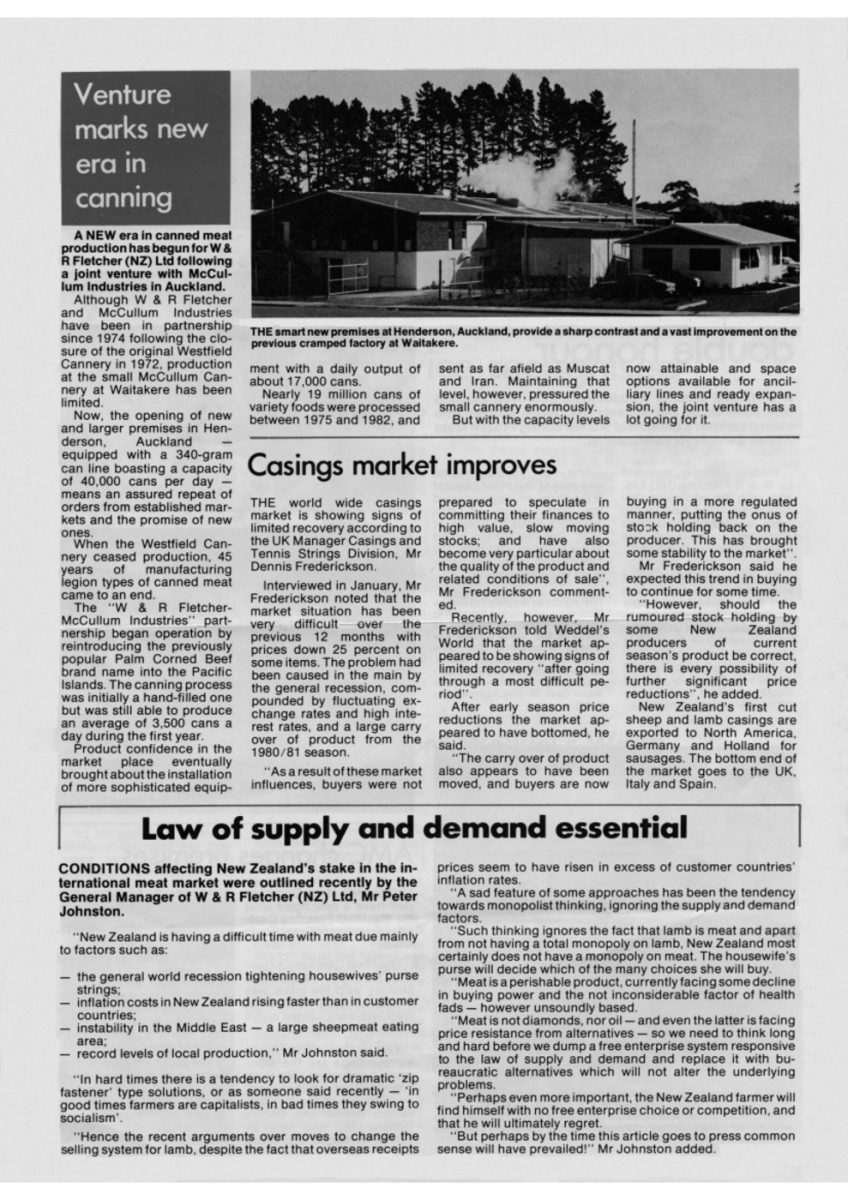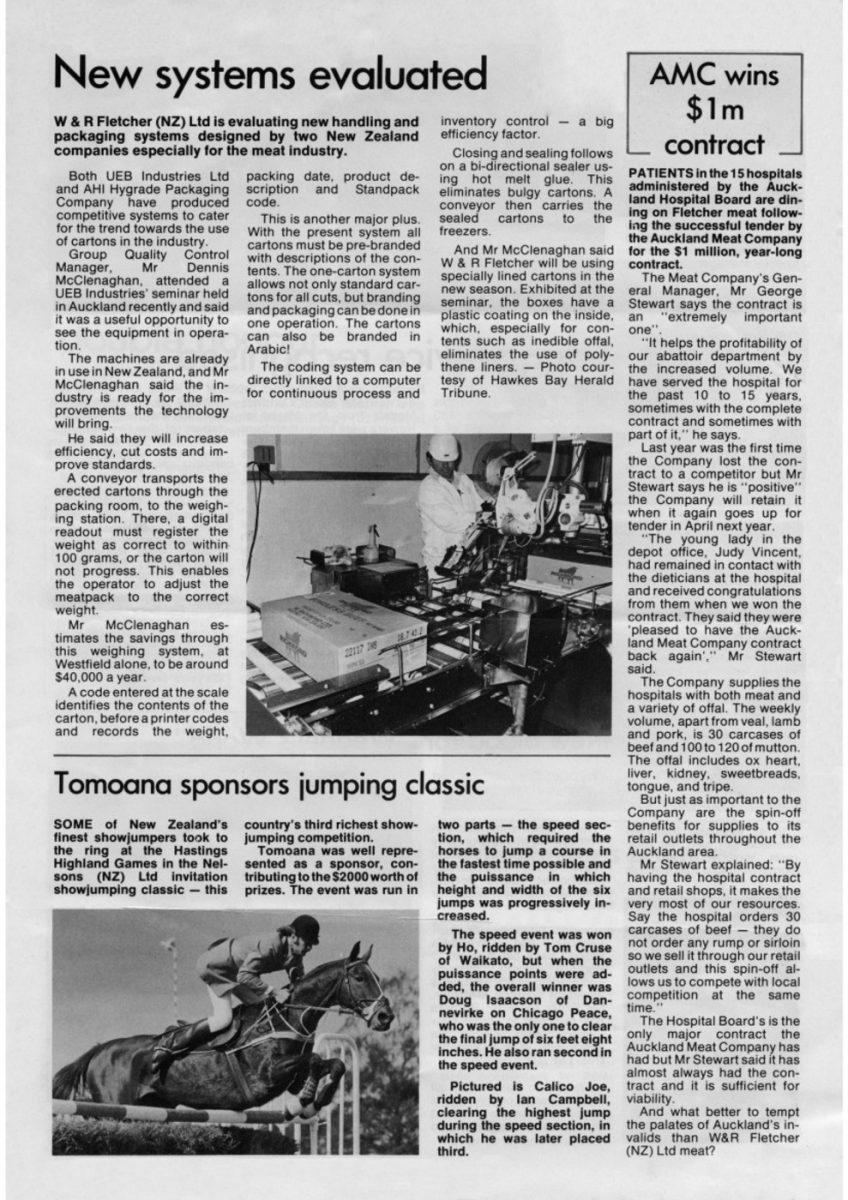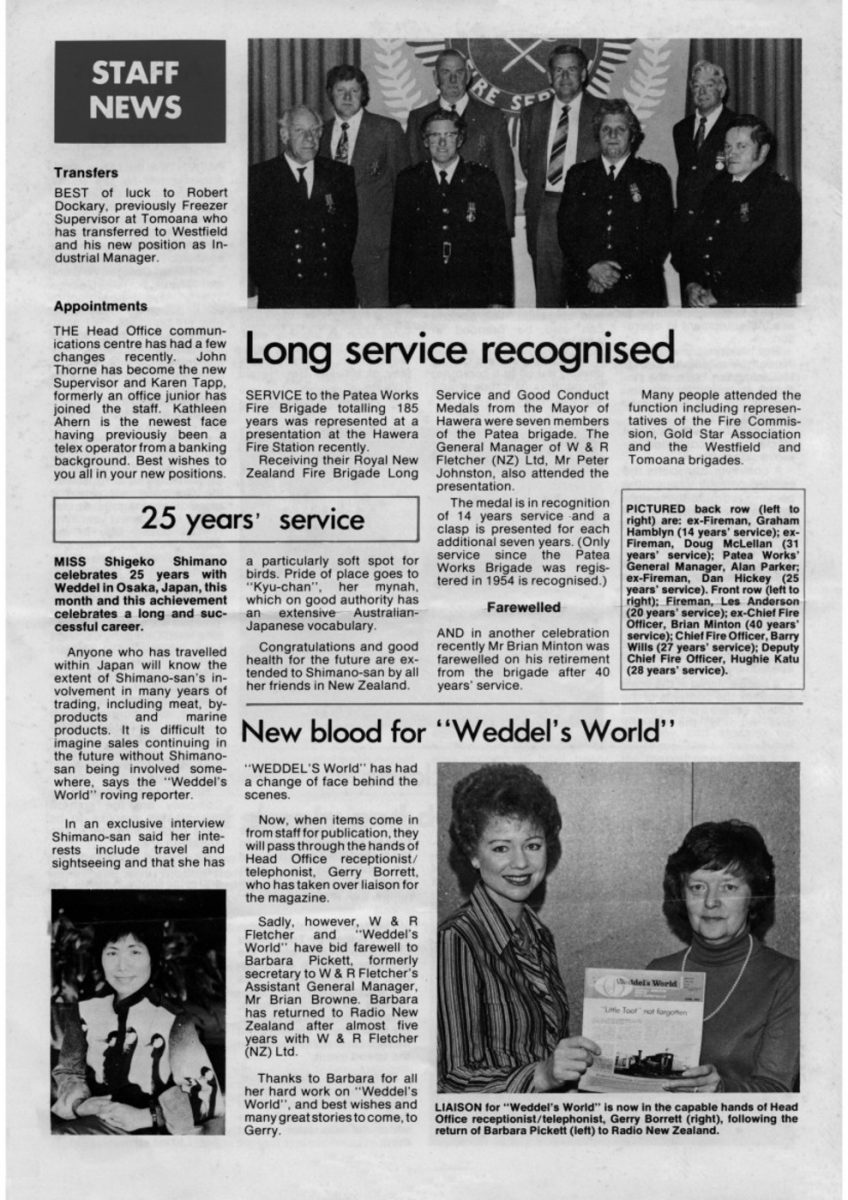Venture marks new era in canning
A NEW era in canned meat production has begun for W & R Fletcher (NZ) Ltd following a joint venture with McCullum Industries in Auckland.
Although W & R Fletcher and McCullum Industries have been in partnership since 1974 following the closure of the original Westfield Cannery in 1972, production at the small McCullum Cannery at Waitakere has been limited.
Now, the opening of new and larger premises in Henderson, Auckland – equipped with a 340-gram can line boasting a capacity of 40,000 cans per day – means an assured repeat of orders from established markets and the promise of new ones.
When the Westfield Cannery ceased production, 45 years of manufacturing legion types of canned meat came to an end.
The “W & R Fletcher-McCullum Industries” partnership began operation by reintroducing the previously popular Palm Corned Beef brand name into the Pacific Islands. The canning process was initially a hand-filled one but was still able to produce an average of 3,500 cans a day during the first year.
Product confidence in the market place eventually brought about the installation of more sophisticated equipment with a daily output of about 17,000 cans.
Nearly 19 million cans of variety foods were processed between 1975 and 1982, and sent as far afield as Muscat and Iran. Maintaining that level, however, pressured the small cannery enormously.
But with the capacity levels now attainable and space options available for ancilliary lines and ready expansion, the joint venture has a lot going for it.
Photo caption – THE smart new premises at Henderson, Auckland, provide a sharp contrast and a vast improvement on the previous cramped factory at Waitakere.
Casings market improves
THE world wide casings market is showing signs of limited recovery according to the UK Manager Casings and Tennis Strings Division, Mr Dennis Frederickson.
Interviewed in January, Mr Frederickson noted that the market situation has been very difficult over the previous 12 months with prices down 25 percent on some items. The problem had been caused in the main by the general recession, compounded by fluctuating exchange rates and high interest rates, and a large carry over of product from the 1980/81 season.
“As a result of these market influences, buyers were not prepared to speculate in committing their finances to high value, slow moving stocks; and have also become very particular about the quality of the product and related conditions of sale”, Mr Frederickson commented.
Recently, however, Mr Frederickson told Weddel’s World that the market appeared to be showing signs of limited recovery “after going through a most difficult period”.
After early season price reductions the market appeared to have bottomed, he said.
“The carry over of product also appears to have been moved, and buyers are now buying in a more regulated manner, putting the onus of stock holding back on the producer. This has brought some stability to the market”.
Mr Frederickson said he expected this trend in buying to continue for some time.
“However, should the rumoured stock holding by some New Zealand producers of current season’s product be correct, there is every possibility of further significant price reductions”, he added.
New Zealand’s first cut sheep and lamb casings are exported to North America, Germany and Holland for sausages. The bottom end of the market goes to the UK, Italy and Spain.
Law of supply and demand essential
CONDITIONS affecting New Zealand’s stake in the international meat market were outlined recently by the General Manager of W & R Fletcher (NZ) Ltd, Mr Peter Johnston.
“New Zealand is having a difficult time with meat due mainly to factors such as:
– the general world recession tightening housewives’ purse strings;
– inflation costs in New Zealand rising faster than in customer countries;
– instability in the Middle East – a large sheepmeat eating area;
– record levels of local production,” Mr Johnston said.
“In hard times there is a tendency to look for dramatic ‘zip fastener’ type solutions, or as someone said recently – ‘in good times farmers are capitalists, in bad times they swing to socialism’.
“Hence the recent arguments over moves to change the selling system for lamb, despite the fact that overseas receipts prices seem to have risen in excess of customer countries’ inflation rates.
“A sad feature of some approaches has been the tendency towards monopolist thinking, ignoring the supply and demand factors.
“Such thinking ignores the fact that lamb is meat and apart from not having a total monopoly on lamb, New Zealand most certainly does not have a monopoly on meat. The housewife’s purse will decide which of the many choices she will buy.
“Meat is a perishable product, currently facing some decline in buying power and the not inconsiderable factor of health fads – however unsoundly based.
“Meat is not diamonds, nor oil – and even the latter is facing price resistance from alternatives – so we need to think long and hard before we dump a free enterprise system responsive to the law of supply and demand and replace it with bureaucratic alternatives which will not alter the underlying problems.
“Perhaps even more important, the New Zealand farmer will find himself with no free enterprise choice or competition, and that he will ultimately regret.
“But perhaps by the time this article goes to press common sense will have prevailed!” Mr Johnston added.















Do you know something about this record?
Please note we cannot verify the accuracy of any information posted by the community.